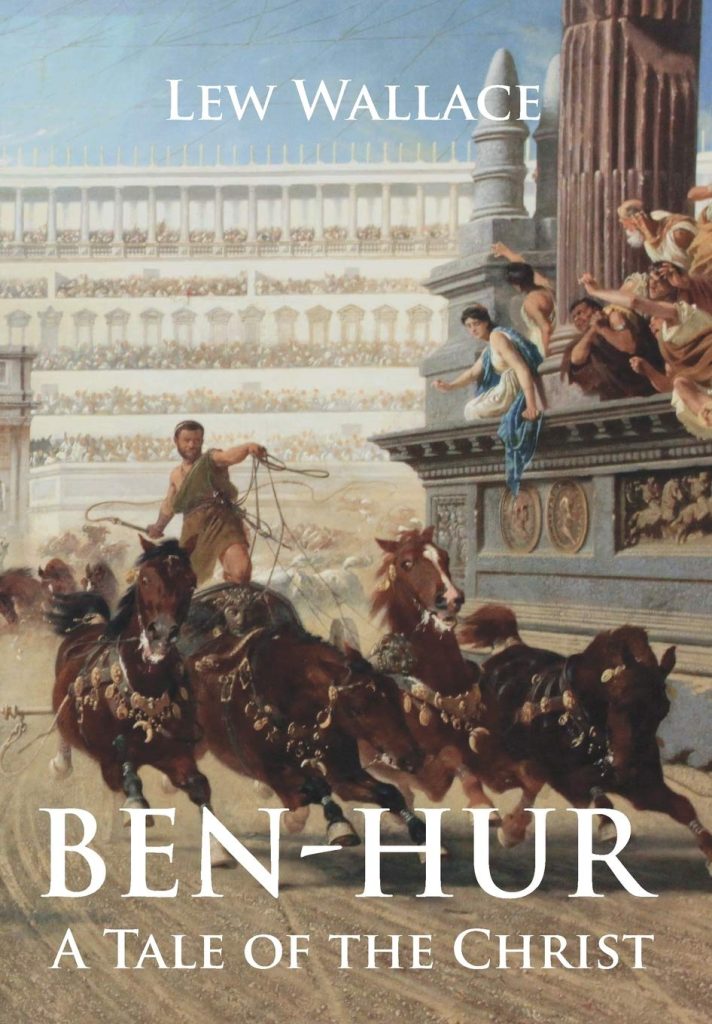Lew Wallace
“”They took him last night, and tried him,” the man continued. “At dawn they led him before Pilate. Twice the Roman denied his guilt; twice he refused to give him over. At last he washed his hands, and said, ‘Be it upon you then;’ and they answered–” “Who answered?” “They–the priests and people–‘His blood be upon us and our children.'” “Holy father Abraham!” cried Ben-Hur; “a Roman kinder to an Israelite than his own kin! And if–ah, if he should indeed be the son of God, what shall ever wash his blood from their children? It must not be–’tis time to fight!””
We’re all familiar with the expression of comparing something time-consuming to “as long as Ben-Hur!” This often leads to the misconception that the book must be dull. However, despite its substantial length, Ben-Hur proves to be an enthralling narrative that grips readers from start to finish.
The story revolves around Judah Ben-Hur, a young Jewish prince living in first-century Judea. His life suddenly takes a drastic turn when he’s wrongly accused of an assassination attempt, leading to his separation from his family and forced labour on a slave galley. He soon meets with many adventures including encountering figures like Balthasar, one of the Magi who visited Christ, engaging in the iconic chariot race against his rival Messala, and even raising an army to fight on the side of the Messiah.
While Ben-Hur offers a riveting journey that’s impossible to put down, it’s crucial to acknowledge its fictional nature. The novel doesn’t adhere to historical accuracy and incorporates elements influenced by Roman Catholic perspectives, including depictions of Christ with feminine features. Such ideas are not endorsed by the Mount Barker Presbyterian Church. Enjoy Ben-Hur for its captivating storytelling but remember to appreciate it as a story.

